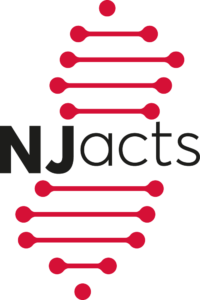 Please read Dr. Lum’s article in the Journal of Proteome Research titled, “Differential Contributions of Interferon Classes to Host Inflammatory Responses and Restricting Virus Progeny Production.“
Please read Dr. Lum’s article in the Journal of Proteome Research titled, “Differential Contributions of Interferon Classes to Host Inflammatory Responses and Restricting Virus Progeny Production.“
The cornerstone of mammalian intrinsic and innate immune defense against pathogens is the production of interferons (IFNs), cytokines that stimulate antipathogen signaling pathways through the simultaneous expression of hundreds of interferon-stimulated genes (ISGs). Type I IFNs (IFN-α, -β, -ε, -κ, -ω, and others) and Type II IFN (IFN-γ) have long been recognized for their pleiotropic and inhibitory properties against invading pathogens. These cytokines and ISGs not only serve autocrine roles for inhibiting pathogen replication, but also trigger cascades of paracrine signaling to alert nearby cells and professional cells in the innate and adaptive immune systems. In response to virus infections, unlike Type I IFNs that are produced by most somatic cell types, the Type II IFN-γ is primarily secreted by immune cell types. IFN-γ serves as a bridge between the innate and adaptive immune responses, stimulating the cytotoxic activity of natural killer cells and critically activating macrophages by polarization to promote viral clearance. It is now evident that, during a viral infection, host Type I and II IFNs stimulate cell-autonomous and nonautonomous immunogenic pathways in both immune and nonimmune cell types that suppress each stage of the viral life cycle (e.g., virion entry, viral mRNA and protein synthesis, genome replication, assembly, and egress). To read the full article.
Differential Contributions of Interferon Classes to Host Inflammatory Responses and Restricting Virus Progeny Production. Lum KK, Reed TJ, Yang J, Cristea IM. J Proteome Res. 2024 Aug 2;23(8):3249-3268. PMID: 38564653 PMCID: PMC11296908 DOI: 1021/acs.jproteome.3c00826
